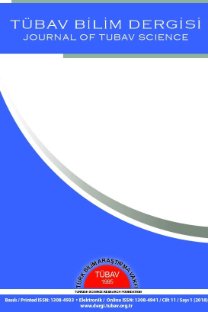ENERGY PERFORMANCE OF GLASS BUILDING MATERIALS
The type of glass has become one of the parameters affecting the amount of energy gains and losses caused by transparent surfaces and it can affect energy consumption used for heating buildings. The analysis of glasses according to climatic conditions and development of solutions for the amount of energy consumption caused by glasses is very important from an energy-efficient design perspective. In this regard, this paper aims to raise awareness about the increasing number of residential buildings in Turkey on the selection of energy-efficient glass types and to provide guidelines for the actors involved in the construction sector. In this study, a typical type residential building project of the Housing Development Administration of Turkey (TOKİ) located in three degree day regions of Turkey with different degrees of sunlight was evaluated according to the Thermal Insulation Standard for Buildings (TS 825). Twelve scenarios were created from single thermopane, double thermopane, single low-e glass, and double low-e glass options. These scenarios were analysed by eQuest energy analysis program in terms of energy consumption resulting from natural gas use for house heating. According to the analysis, use of single thermopane in III. degree-day region gives the highest energy consumption rate while use of single low-e glass in I. degree-day region gives the lowest rate. The obtained results have indicated that the type of glass affects energy consumption
ENERGY PERFORMANCE OF GLASS BUILDING MATERIALS
The type of glass has become one of the parameters affecting the amount of energy gains and losses caused by transparent surfaces and it can affect energy consumption used for heating buildings. The analysis of glasses according to climatic conditions and development of solutions for the amount of energy consumption caused by glasses is very important from an energy-efficient design perspective. In this regard, this paper aims to raise awareness about the increasing number of residential buildings in Turkey on the selection of energy-efficient glass types and to provide guidelines for the actors involved in the construction sector. In this study, a typical type residential building project of the Housing Development Administration of Turkey (TOKİ) located in three degree day regions of Turkey with different degrees of sunlight was evaluated according to the Thermal Insulation Standard for Buildings (TS 825). Twelve scenarios were created from single thermopane, double thermopane, single low-e glass, and double low-e glass options. These scenarios were analysed by the eQuest energy analysis program in terms of natural gas use for house heating and energy consumption. The obtained results have indicated that the type of glass affects energy consumption.
Keywords:
Energy Performance, Glass Building Material Low-e Glass, eQUEST,
- ISSN: 1308-4933
- Başlangıç: 2008
- Yayıncı: TÜRK BİLİM ARAŞTIRMA VAKFI (TÜBAV)
Sayıdaki Diğer Makaleler
ENERGY PERFORMANCE OF GLASS BUILDING MATERIALS
Arzuhan Burcu GÜLTEKİN, Elnaz Bagheri FARAHBAKHSH
AKSEKİ, İLVAT BÖLGESİ AHŞAP KAPI TİPOLOJİSİ VE KİLİT SİSTEMİNİN 'TRAKA-TIFRAZ' BELGELENMESİ
Özlem SAĞIROĞLU, Tuğba KINIKLIOĞLU, Sevim Sezi KARAYAZI
KONUTLARDA HAVA KALİTESİNİ ETKİLEYEN KİRLETİCİLER VE KULLANICI MEMNUNİYETİNİN TESPİT EDİLMESİ
Hamza ÇINAR, Nihat DÖNGEL, Musa ATAR, İbrahim AYDIN
FARKLI KÜR KOŞULLARININ TABAN KÜLÜ KATKILI GEOPOLİMERLERİN TERMAL VE MEKANİK ÖZELLİKLERİNE ETKİSİ
